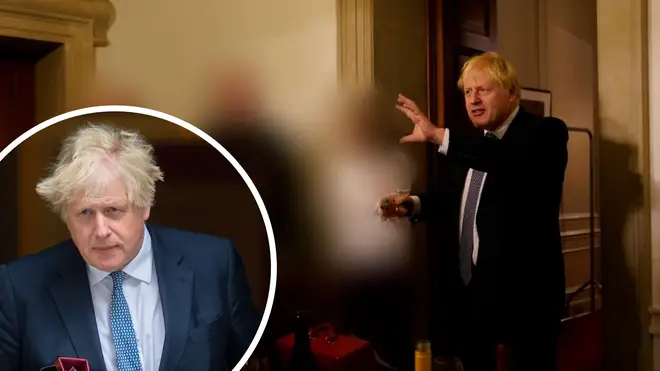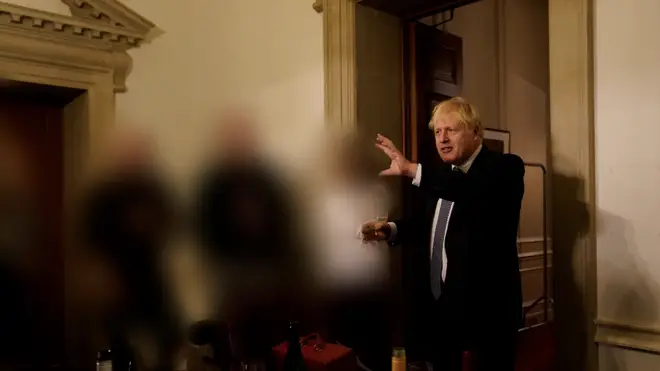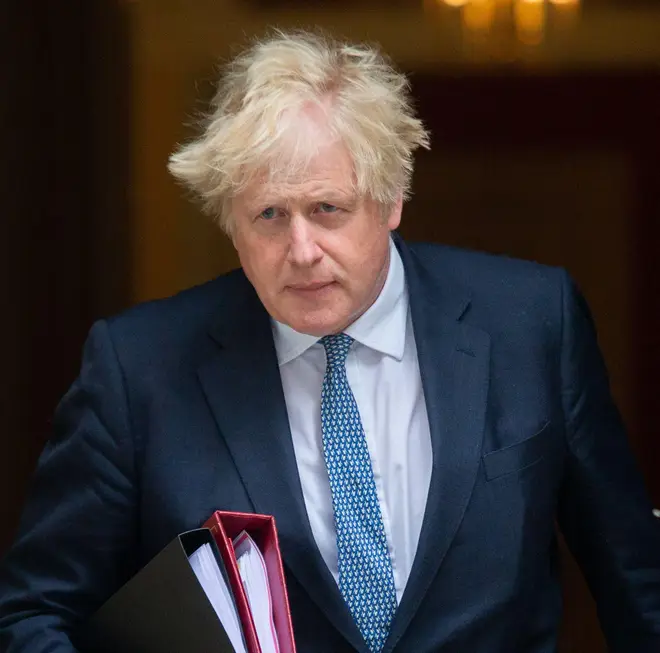
Shelagh Fogarty 1pm - 4pm
25 May 2022, 12:57 | Updated: 25 May 2022, 13:16

Sue Gray's long-anticipated final report has been published, revealing new details about the Government's bashes while the rest of the country was in lockdown.
The report is 60 pages long and features nine photos of gatherings held in Whitehall through 2020 and 2021.
It investigated 16 parties across 12 dates.
Here are the main points.
The report noted that many of the events in question saw people drinking excessively, something Ms Gray said was "not appropriate in a professional workplace at any time".
Every one of the events investigated by the report featured alcohol.
Read more: Boris's birthday bash pictures revealed as Gray report slams failings and drinking in No10
At a leaving party on June 18 2020, the report noted that one individual was sick after "excessive alcohol consumption", and two others got into a "minor altercation".
The night before Prince Philip's funeral, staff partied until 4.35am.

Often the parties resulted in substantial mess and sometimes breakages.
The morning after a party on December 18, a cleaner reported finding red wine had been spilled up the wall and on a number of boxes of photocopier paper.
At the party on June 18, staff began leaving at 9pm but an individual who stayed to tidy up did not finish cleaning until after 3am.
At the party the night before the Duke of Edinburgh's funeral, a swing belonging to Boris Johnson's baby son was broken by staff "playing with it".
Read more: Read it in full: Sue Gray's much-anticipated final Partygate report
Messages exchanged between members of staff suggest they knew what they were doing was against the rules.
Martin Reynolds, in a message to a special adviser on an unknown date, referred to the "BYOB" party in the Downing Street party on May 20 and said: "We seem to have got away with [it]".
At the same party, staff were told beforehand to keep the noise down and keep alcohol out of sight whilst a scheduled press conference was going on.
"Drinks this eve is a lovely idea so I've shared with the E & V team who are in the office," wrote a special adviser to Martin Reynolds.
"Just to flag that the press conference will probably be finishing around that time, so helpful if people can be mindful of that as speakers and cameras are leaving, not walking around waving bottles of wine etc."

Another conclusion of the report was that more junior members of staff were treated badly by senior officials.
Security and cleaning staff were treated 'poorly' and with a "lack of respect", the report found.
Ms Gray deemed it "unacceptable".
The report also found that members of staff witnessed concerning behaviour at work but, with the culture as it was, did not feel they could raise it.
Read more: The nine damning pictures from Sue Gray's final Partygate report
"I found that some staff had witnessed or been subjected to behaviours at work which they had felt concerns about but at times felt unable to raise properly," read the report.
It added: "No member of staff should feel unable to report or challenge poor conduct where they witness it."
Despite the fact some people did not feel they could raise their worries, some more senior officials tried to.
Former director of communications Lee Cain responded to the invitation to the "BYOB" party from Martin Reynolds saying: "A 200 odd person invitation for drinks in the garden of no 10 is somewhat of a comms risk in the current environment."
Watch live: Boris to issue apology as scale of lockdown-breaking in No10 laid bare
He says he then told Mr Reynolds the event should be cancelled.
Dominic Cummings said he also raised concerns about the event, although the report notes there was no visible evidence of this.
The report concluded that, whilst the parties were attended by all levels of Government, responsibility for the culture lay with senior leaders.
"The events that I investigated were attended by leaders in government," the report said.
"Some of the more junior civil servants believed that their involvement in some of these events was permitted given the attendance of senior leaders.
"The senior leadership at the centre, both political and official, must bear responsibility for this culture."